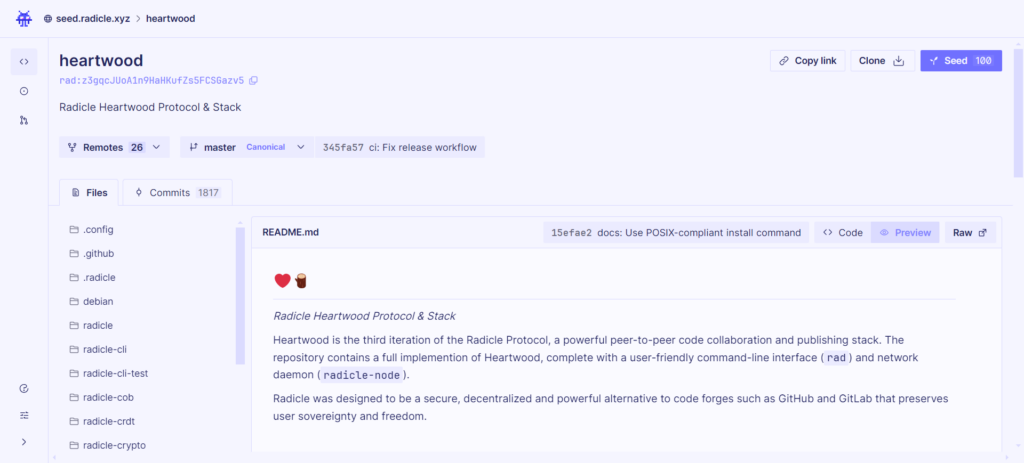Code repositories are an important but often overlooked aspect of tech innovations. The general audience is not that tech-savvy, including myself. As a result, you won’t find them often surfing GitHub or GitLab.
On the other hand, devs can have field days with them. Radicle now launched a decentralized open-source code collaboration stack. We are taking a closer look at what Radicle brought to the table.
What Is Radicle?
Radicle is a peer-to-peer code collaboration platform. Recently, it launched version 1.0 of its decentralized open-source code collaboration stack. This is the follow-up to its beta stack, which was live from 2020. During the beta version, there was plenty of time to refine the current 1.0 version.
1/ It’s a big day for the Radicle community We're excited to announce the rollout of our first release candidate for Radicle 1.0 — our most significant update to date
Start collaborating today
https://t.co/VeQbr14B7I
Here’s an overview of what’s new
pic.twitter.com/7dQOp4vHA1
— Radicle (@radicle) March 26, 2024
It offers a service similar to GitHub. However, GitHub is a centralized platform. As a result, the decentralized version gives devs full control of their data. Radicle also uses a P2P or peer-to-peer setup. In contrast, GitHub uses for all its deployments the client-server model.
This makes Radicle an alternative to the increasing centralization of software in general. This includes code repositories. As such, you can compare Radicle more with Mastodon or the TOR Network. Its architecture offers much more freedom in how you can connect and interact.
It utilizes a so-called ‘gossip protocol’. This allows nodes to exchange data. At the same, it’s highly fault-tolerant, and it’s hard to censor. Furthermore, it offers maximum uptime.
Digital Freedom With Radicle
Another important feature that Radicle brings to the table is digital freedom. By using its repository, the open-source community can code without fear of reprisals. Because it’s open-source, there are also no licenses that can slow down innovations. The picture below shows the Radicle Heartwood Protocol & Stack.

Source: Radicle seed
Radworks created the software for this 1.0 version. This community sees internet freedom as one of its pillars. With this in mind, it created a robust open-source tool that has the potential to change the world. However, Radicle doesn’t operate on a blockchain. Nonetheless, it shares plenty of the same characteristics. For instance, it facilitates permissionless access.
To sum up, this should benefit devs and their teams who are working on Web3 solutions. Radicle won’t replace GitHub or GitLab with its new platform. However, it offers solo devs or small teams open-source codes and collabs. This will help to advance digital freedom.
Disclaimer
The information discussed by Altcoin Buzz is not financial advice. This is for educational, entertainment and informational purposes only. Any information or strategies are thoughts and opinions relevant to accepted levels of risk tolerance of the writer/reviewers, and their risk tolerance may be different from yours.
We are not responsible for any losses that you may incur as a result of any investments directly or indirectly related to the information provided. Bitcoin and other cryptocurrencies are high-risk investments, so please do your due diligence.
Copyright Altcoin Buzz Pte Ltd.
The post Radicle Launches a Decentralized GitHub Version appeared first on Altcoin Buzz.



